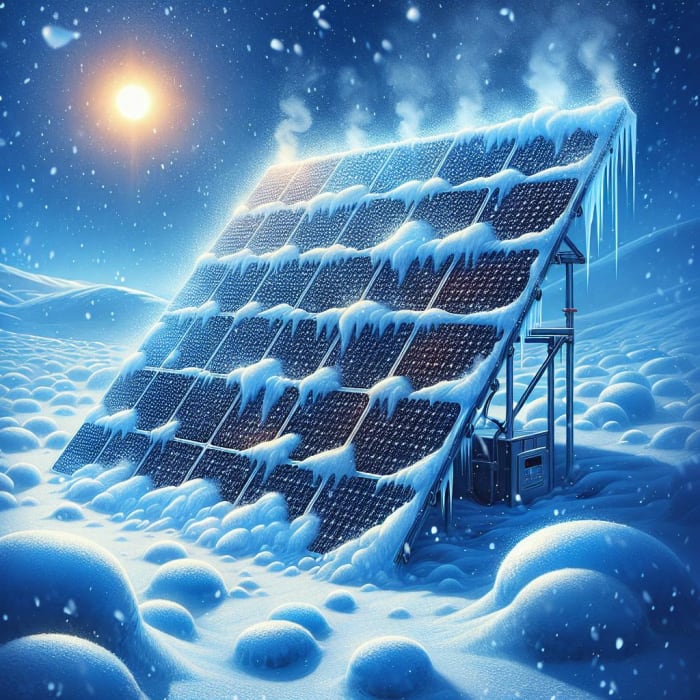
Solar panels aren't limited to those hot, sunny days, folks. Despite the common misconception, solar panels are nevertheless capable of performing well in the cold. In certain instances, solar panels perform better in colder climates than in warmer ones. Let's dispel some fallacies regarding solar panels and cold weather and break it all down for you guys.
Let's be clear about one thing right away: heat is not necessary for solar panels to produce power. They function by using a mechanism known as the photovoltaic effect to transform sunlight into electrical energy. Thus, the panels will continue to spin as long as there is sunshine, regardless of the weather.
Now, some people believe that snow and ice can obstruct solar panels' ability to absorb sunlight during cold weather. But don't worry, everyone. The majority of solar panels are made to slope, which makes snow and ice easily slide off of them. In addition, the panels' dark tone helps melt any snow or ice that does manage to linger around by absorbing sunlight.
Studies have also indicated that colder temperatures can actually increase the efficiency of solar panels. This is because colder temperatures allow electricity to pass through the panels more freely, allowing them to produce more power per square foot than they do in extremely hot weather. Therefore, don't let the chilly weather deceive you—the panels are still going strong and doing their job.
Not to mention the reduced number of daylight hours during the winter. Although some people might assume that less sunlight equals less electricity, this is untrue. Even on the shorter winter days, solar panels are still capable of producing electricity. In addition, the winter sun is at a lower angle in the sky, so that sunlight strikes the panels directly, increasing their efficiency.
You may be wondering what happens to those solar panels if they are coated in ice or snow. As previously stated, the majority of panels are made to be slanted, allowing snow and ice to flow off them easily. However, you may easily brush the snow away or use a small amount of warm water to melt it away if there is an exceptionally heavy snowfall. Simple as pie, huh?
The resilience of solar panels to low temperatures is another advantage in the wintertime. When the temperature drops, solar panels won't freeze or break like some other energy sources might. They are long-lasting and able to function even in the coldest conditions.
But, folks, don't just believe what we say. Numerous investigations and experiments have shown that solar panels may remain quite effective in frigid temperatures. Thus, the next time someone attempts to convince you that solar panels are useless in the winter, you may correct them and inform them of the reality.
And that's it, people. Solar panels are not limited to those hot, sunny days. Even in the winter, they are still able to produce a lot of electricity. Therefore, if you're considering going solar, don't let the cold deter you. Whatever Mother Nature throws at them, those panels will continue to function.
Comments
Post a Comment